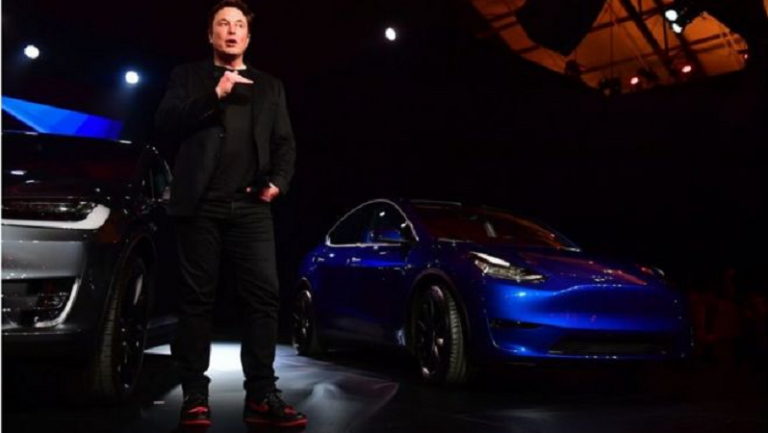
After months of intense political involvement under President Donald Trump’s administration, Elon Musk is stepping back from his government role and returning his attention to the companies that catapulted him to global fame and immense wealth.
In a post on his social media platform X, Musk wrote: “Back to spending 24/7 at work and sleeping in conference/server/factory rooms,” referencing the platform’s recent outages and hinting at a renewed dedication to his core ventures. “I must be super focused on xAI and Tesla (plus Starship launch next week), as we have critical technologies rolling out.”
The announcement follows Musk’s earlier comments during Tesla’s April earnings call, where he revealed plans to reallocate his time.
Register for Tekedia Mini-MBA edition 19 (Feb 9 – May 2, 2026).
Register for Tekedia AI in Business Masterclass.
Join Tekedia Capital Syndicate and co-invest in great global startups.
Register for Tekedia AI Lab.
“I think I’ll continue to spend a day or two per week on government matters for as long as the president would like me to do so, and for as long as it is useful, but starting next month, I’ll be allocating far more of my time to Tesla, now that the major work of establishing the Department of Government Efficiency is done,” he said.
A Polarizing Political Stint
Musk’s role as the head of the Department of Government Efficiency (DOGE), a newly created agency under Trump, was defined by sweeping workforce reductions and budgetary rollbacks that targeted several federal agencies, including the Consumer Financial Protection Bureau and USAID. These aggressive measures left thousands of federal workers uncertain about their futures, drawing criticism from both sides of the aisle.
His political activism extended beyond administrative functions. Musk’s super PAC poured millions into Republican-aligned causes, including a high-profile but unsuccessful effort to influence a critical Wisconsin Supreme Court race. Despite his visibility in right-wing politics, Musk recently stated at the Qatar Economic Forum that he would significantly reduce political donations going forward.
“If I see a reason to do political spending in the future, I will do it. I do not currently see a reason,” he said.
Fallout at Tesla
Musk’s political pivot sparked backlash among investors and Tesla’s core customer base, particularly among liberals and environmentalists who had long supported the brand. Tesla’s stock price significantly declined during the height of Musk’s political entanglements, and the company faced reputational challenges.
Marketing professor and analyst Scott Galloway criticized Musk’s political foray, calling it “one of the greatest brand destructions in history.” Tesla’s brand ranking plummeted from 8th to 95th in the Axios Harris Poll between 2021 and 2024.
Additionally, Tesla experienced a sharp 60% drop in vehicle sales in Germany in early 2024, a fall that coincided with Musk’s public backing of the far-right Alternative for Germany (AfD) party and comments that were seen as supportive of anti-immigrant views. Across multiple cities, protests have erupted outside Tesla factories, and Musk’s polarizing rhetoric has driven former customers to sell their vehicles in protest.
A Morgan Stanley investor survey found that 85% of respondents believed Musk’s political activity had negatively or extremely negatively impacted Tesla’s business fundamentals. There were even reports of growing pressure within Tesla’s boardroom, amid speculation that directors were quietly discussing a potential leadership transition.
Musk’s statement that he would remain Tesla’s CEO for “at least five years” was meant to quell such speculation.
“If Tesla is to continue to lead in AI and robotics, we need to make sure I have reasonable control,” Musk said during the April call.
Investors React to Political Withdrawal
In a sign of renewed investor confidence, Tesla shares rebounded sharply after Musk confirmed his intention to reduce his political involvement. The stock saw a 43% gain following the earnings call where he announced his pivot back to business.
But questions remain over how far Musk will distance himself from politics. While he has stated he will devote less time and money to political activities, it is not clear whether he will temper his political rhetoric—particularly on X, where he frequently engages in combative commentary aligned with far-right views. That rhetoric continues to alienate a significant segment of Tesla’s original base: environmentally conscious, left-leaning consumers.
A recent consumer poll cited by Bloomberg showed that a growing share of Tesla drivers have considered selling their vehicles specifically due to Musk’s political statements. Some even reported they had already sold their cars as an act of protest.
As Tesla faces mounting competition from Chinese automakers like BYD, especially in European markets, Musk’s ability to steer the company back to its innovative and apolitical roots will likely be critical. The company has already missed production targets for its next-generation electric vehicles, and its operating margins have thinned.
Meanwhile, Musk’s attention is increasingly divided among multiple ventures—SpaceX, X, xAI, and Neuralink among them—all at critical stages of technological development. His recent statement suggests a renewed effort to ensure none of them are neglected: “We’re at a pivotal point. I need to be present.”
Only time will tell whether Musk’s re-focus will include a shift in public tone or merely a shuffling of calendar priorities.



